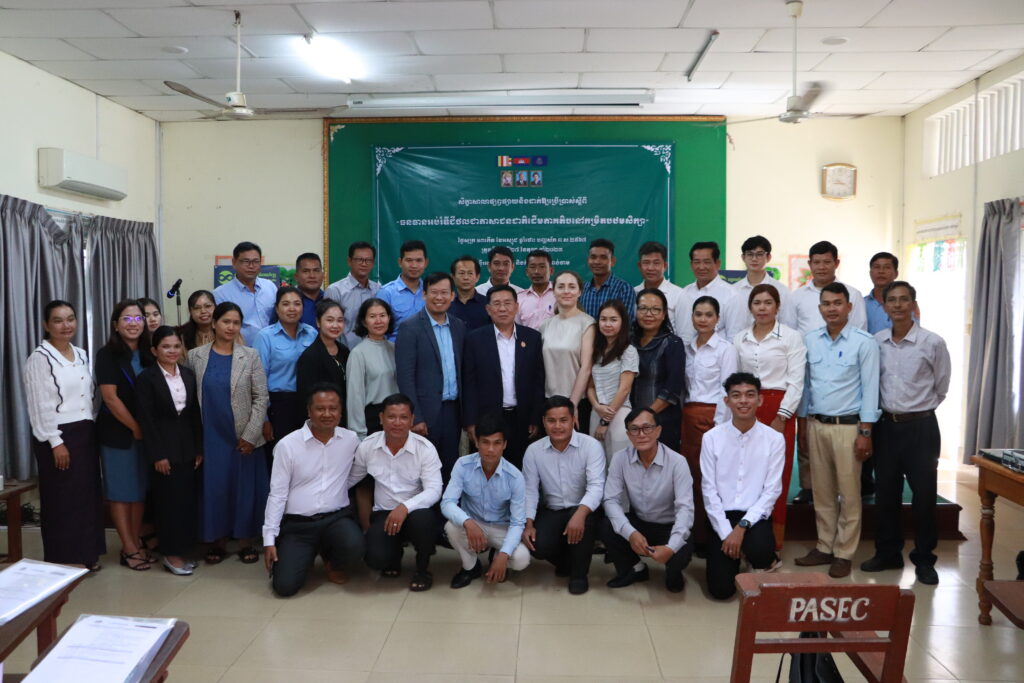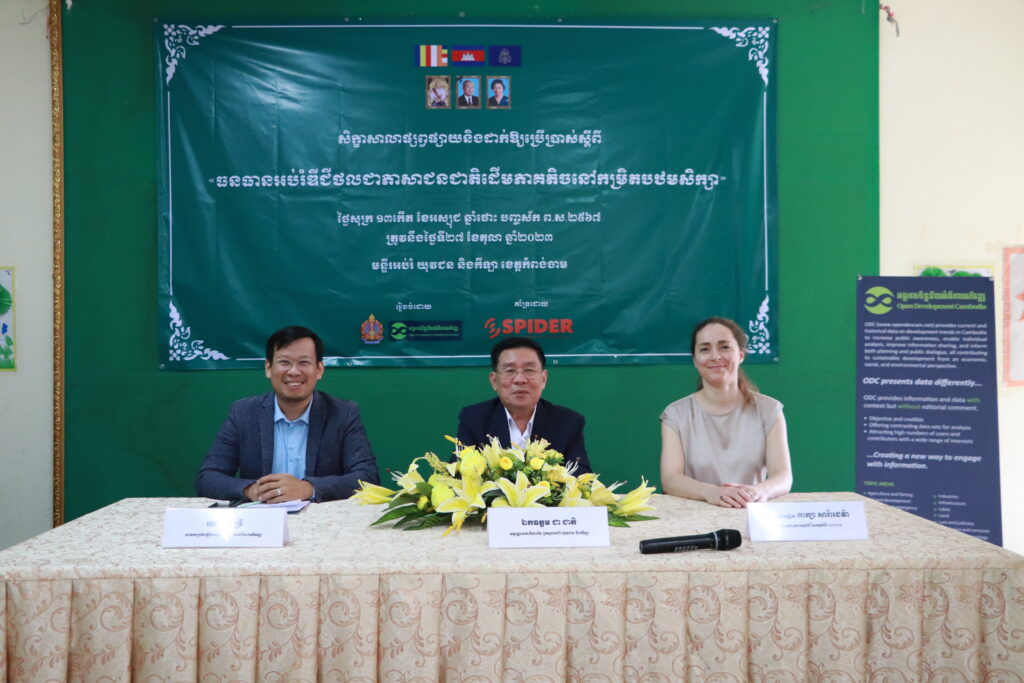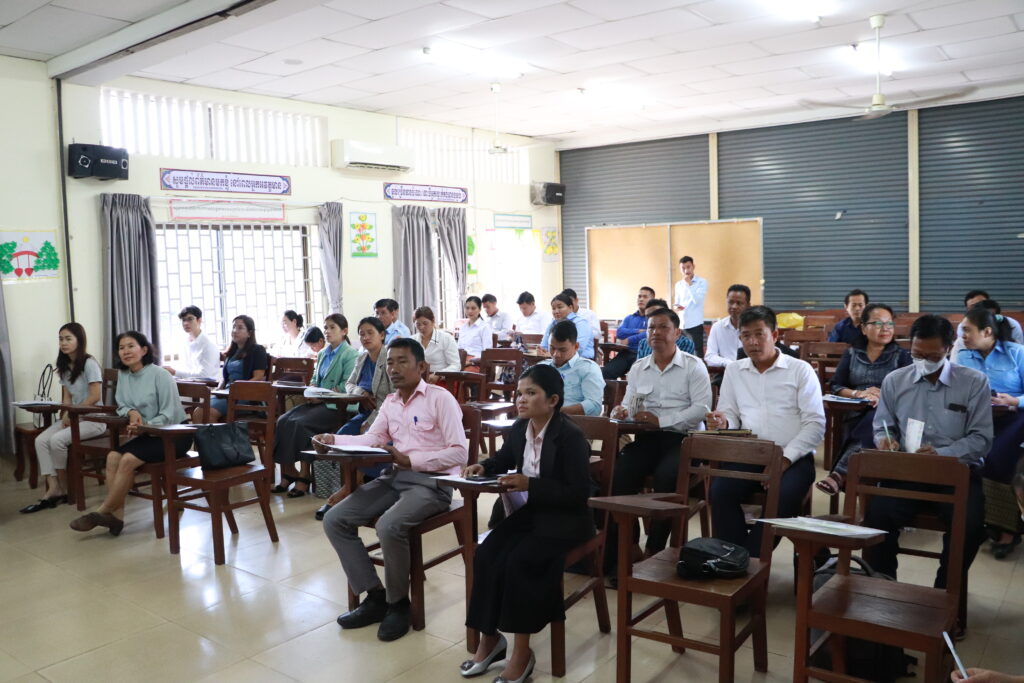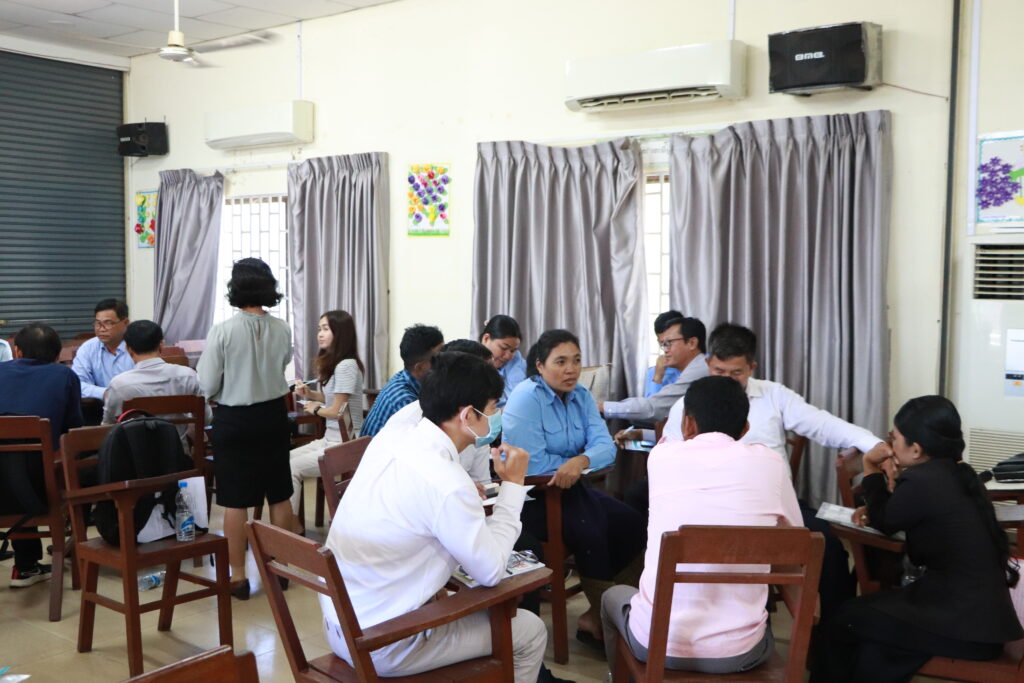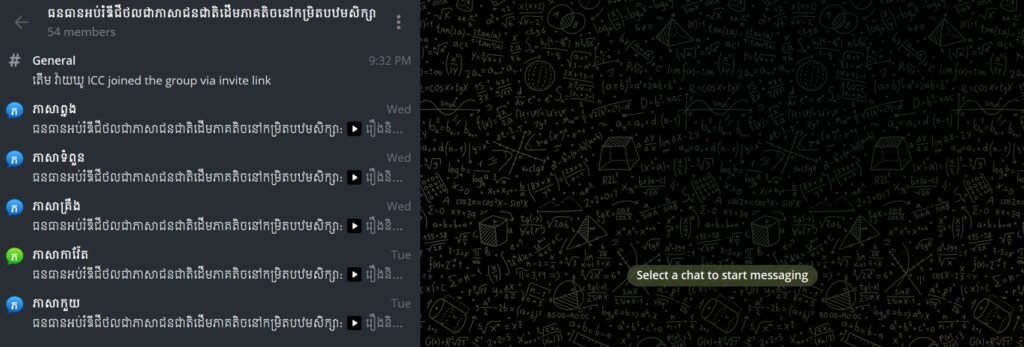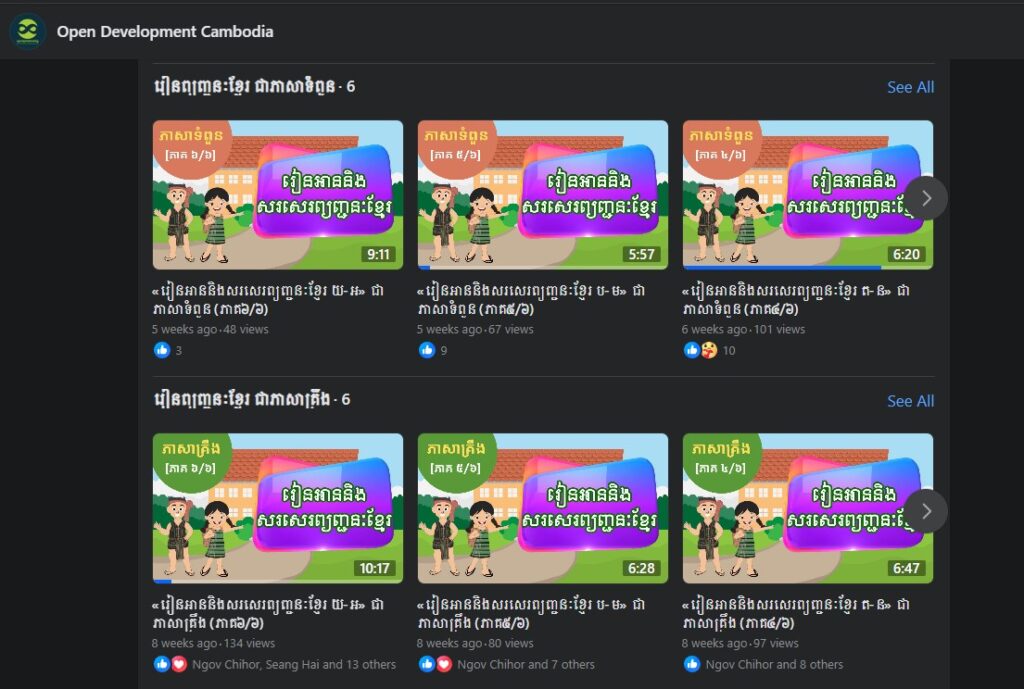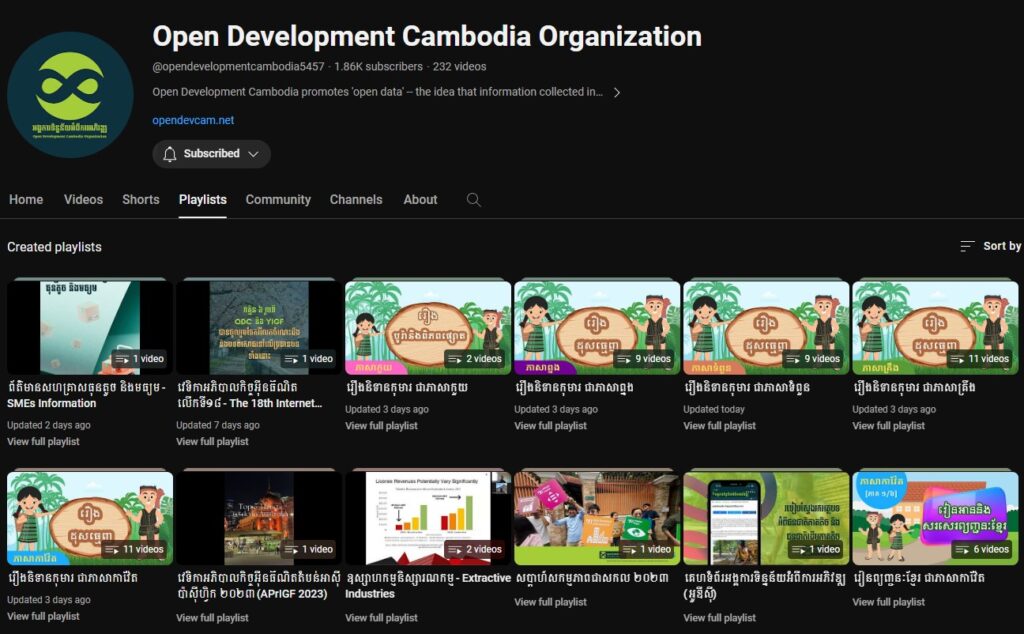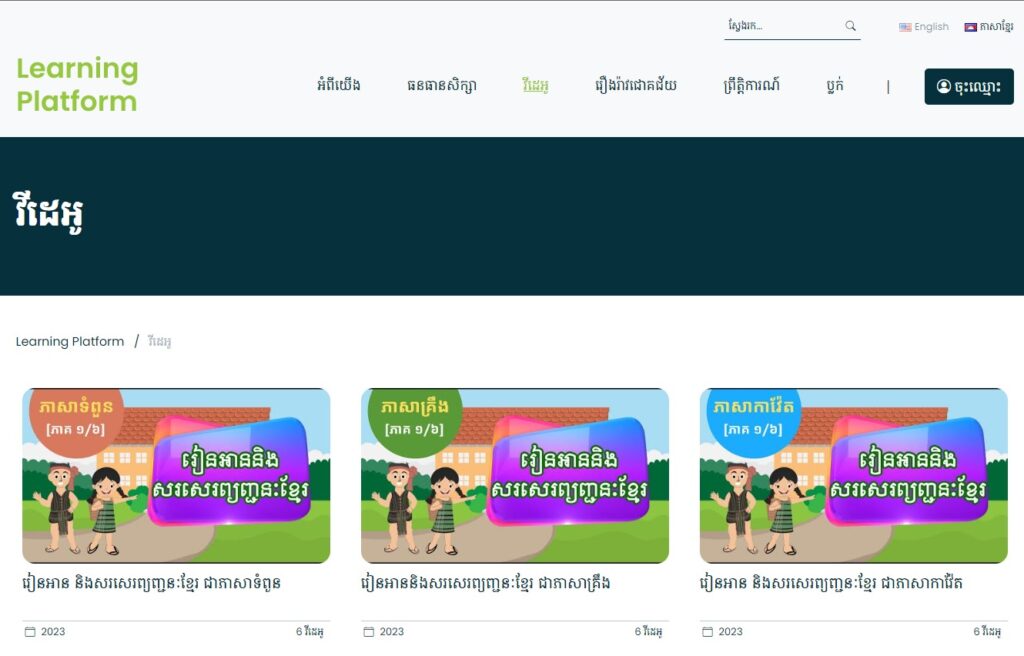ODC contributed to the digital transformation in multilingual education
Open Development Cambodia Organization (ODC) collaborated with the Special Education Department (SED) of the Ministry of Education, Youth and Sport (MoEYS) to organize a launching workshop on “Digital Educational Resources in Indigenous Languages for Primary School Students” under the project “Digital Educational Resources in Indigenous Languages for Primary School Students” on October 27, 2023, in the morning at Kampong Cham Provincial Department of Education, Youth and Sport. The workshop was chaired by H.E. Chea Cheat, Under Secretary of State of MoEYS, Mr. Thy Try, Executive Director of ODC, and Dr. Katja Sarajeva, Program Manager of the Swedish Program for ICT in Developing Regions (SPIDER), who is also the representative of the project donor. This half-day event brought together 34 participants (14 females), including national officials of SED, sub-national officials of Provincial Department of Education, Youth and Sport of Ratanakiri, Mondulkiri, Kratie, Stung Treng, Preah Vihear, and Kampong Thom, school principals, multilingual education teachers and teachers participated in voice recordings, and representatives from The Asia Foundation – Let’s Read, Inclusive Primary Education Activity (IPEA) , Organization for the Promotion of Kui Culture (OPKC), and NGO Education Partnership (NEP).
The workshop was arranged after gathering inputs to produce videos in indigenous languages from the consultative workshop, hosted on March 02, 2023, at the same venue. H.E. Chea Cheat, during the open remarks, stated that nowadays, general education schools and Technical and Vocational Education and Training (TVET) schools have been to some extent integrated with digital technology. In particular, he expressed his excitement and appreciation for the educational resources produced by ODC after the inputs from the consultative workshop and the collaboration with SED. What ODC has been exercising is a significant contribution to the digital transformation in special education and inclusive education for multilingual education students. Despite this great achievement, internet connection is the primary challenge for indigenous peoples living in rural areas to access those resources. He strongly hoped that internet coverage would be available nationwide by 2024, and this would enable connection and communication from one spot to another.
The digital educational resources amount to 90 and are produced in five native languages, including Phnong, Krung, Tumpuon, Kavet, and Kuoy. There are three topics selected for the resources: 1) practicing reading and writing Khmer alphabets (6 videos per native language and for 4 native languages); 2) kid stories (12 videos for 4 native languages and 2 videos for Kuoy); and 3) learning math (4 videos per native language and for 4 native languages). On this occasion, Mr. Try mentioned the project’s progress, which, by the workshop day, had achieved 82% of the total videos produced and reflected ODC’s activities corresponding to Pentagon Strategy of the Government of the Seventh Legislature of the National Assembly. That points to the 5th Pentagon on Development of Digital Economy and Society. He continued that these educational resources would also be published on the learning portal of the MoEYS. In addition, Dr. Katja expressed her pleasure at the progress of the project, bridging indigenous students to learning the national language. She said that the combination of learning a national language and a native language in the videos is part of boosting students’ creativity.
Furthermore, this workshop acted as a platform where education officials and partner organizations shared and exchanged ideas on resources after the presentation and video screening on each topic. The education officials were satisfied with the outputs because they made the learning environment more engaging through interactive cartoons, colorful motion graphics, an environment reflecting their actual livelihoods, and the promotion of both national and native languages. They also suggested ODC consider producing more of the kind. Besides, the partner organizations were optimistic toward the digitalization of kid story handbooks into videos, which helps extend and raise awareness among students about the stories’ morals.
Before the workshop concluded, the coordinator arranged a group discussion focusing on additional promotional methods, multilingual education primary school selection for on-site promotion, and recommendations for ODC to further support multilingual education, not to mention challenges facing the schools at the grassroot level. Having acknowledged the consequences of promoting the resources on-site and in groups through digital means, poor internet connections hold people back from accessing them. In order to ease accessibility and enable them to replay the resources more conveniently, ODC created a Telegram group dividing the topic based on each native language. Hence, sub-national officials, school principals, and multilingual education teachers are able to download, replay, and receive up-to-date information from ODC. In addition to the promotion on the Telegram group, ODC also published the resources on its Facebook page, “Open Development Cambodia Organization,” YouTube channel, “Open Development Cambodia Organization,” and ODC’s Learning Platform website. In the next step, ODC will continuously promote the resources and prepare for project end-line evaluation.
